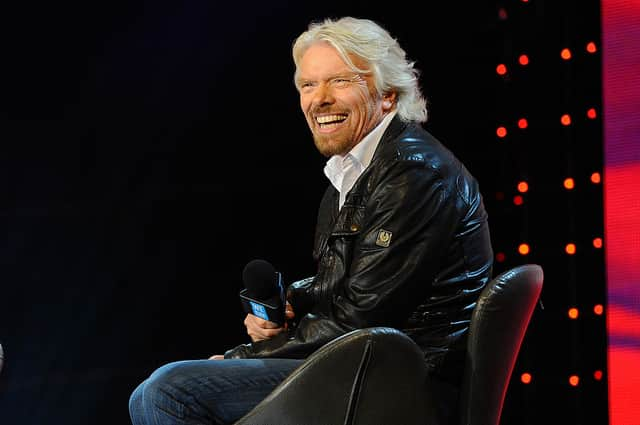Richard Branson: Singapore death penalty TV debate invitation explained, is he going - what he said about drugs laws


Sir Richard Branson has declined an invitation from Singapore’s government to participate in a live televised debate about the country’s drugs policies and its stance on the death penalty.
He was invited to participate in a meeting with K Shanmugam, the city state’s home affairs minister.
Advertisement
Hide AdAdvertisement
Hide AdThe British businessman has previously stated his opposition to the death penalty in Singapore for offences such as drug smuggling, and recently spoke out against the execution of drug trafficker, Nagaenthran Dharmalingam.
Earlier this month, Singapore’s Ministry of Home Affairs rebutted a previous blog post by Sir Richard in which he claimed the government “seems bent on executing scores of low-level drug smugglers, mostly members of poor, disadvantaged minorities”.
He went on to explain that despite having “a well-documented intellectual disability,” Malaysian Dharmalingam was hanged in Singapore.
Here is everything you need to know.
What has Branson said?
Following Sir Richard’s criticism of the Singapore’s government, it invited him to participate in a live televised debate with Shanmugam, and offered to cover his travel and accommodation expenses.
Advertisement
Hide AdAdvertisement
Hide AdSir Richard wrote in an open letter on his blog that television debates are "always at risk of prioritising personalities over issues - cannot do the complexity of the death penalty any service".
The "brave thing" would be to involve Singaporean activists and human rights lawyers, he said. “They deserve to be listened to, not ignored, or worse yet, harassed.”
He also urged the island nation’s administration to participate in "constructive, lasting dialogue involving multiple stakeholders, and a true commitment to transparency and evidence" in order to find a way to abolish the death penalty.
Singapore’s ministry of home affairs said: “Branson may use this platform to demonstrate to Singaporeans the error of our ways and why Singapore should do away with laws that have kept our population safe from the global scourge of drug abuse.”
What are Singapore’s drug laws?
Advertisement
Hide AdAdvertisement
Hide AdNagaenthran was apprehended coming into Singapore from Malaysia in 2009 with 43g of heroin strapped to his left thigh. 43g of heroin roughly equates to about three tablespoons’ worth.
Those caught with more than 15g of heroin are susceptible to the death penalty under Singapore’s drug regulations, which are among the strictest in the world.
According to the Singapore government, the death sentence is an obvious deterrent that has helped prevent large drug gangs from establishing themselves in the South East Asian country.
Activists, on the other hand, argue that there is no compelling evidence that the death penalty reduces crime more effectively than other measures. They also point to the disproportionate number of racial minorities on death row, and claim that the system unfairly punishes persons from low-income families.
Advertisement
Hide AdAdvertisement
Hide AdDuring his trial, 34-year-old Nagaenthran claimed he was coerced into transporting the drugs, but later admitted he did it because he needed money.
Nagaenthran’s case was particularly contentious because a medical expert determined that he had an IQ of 69, implying an intellectual handicap. However, a judge determined that he was not cognitively impaired.
The court ruled that Nagaenthran’s initial defence was "fabricated," and eventually, he was sentenced to death by hanging. The execution of Nagaenthran sparked a wave of protests as many spoke out against what they viewed as the injustice of his death sentence.
Following Nagaenthran’s death, over 400 people took part in a rare protest at Speakers’ Corner in Hong Lim Park, Singapore’s only area where demonstrations are permitted, to demand an end to executions.
Since then, at least ten death row inmates have been executed. In Singapore’s closely controlled media, death sentence cases are rarely published in detail.
Comment Guidelines
National World encourages reader discussion on our stories. User feedback, insights and back-and-forth exchanges add a rich layer of context to reporting. Please review our Community Guidelines before commenting.
